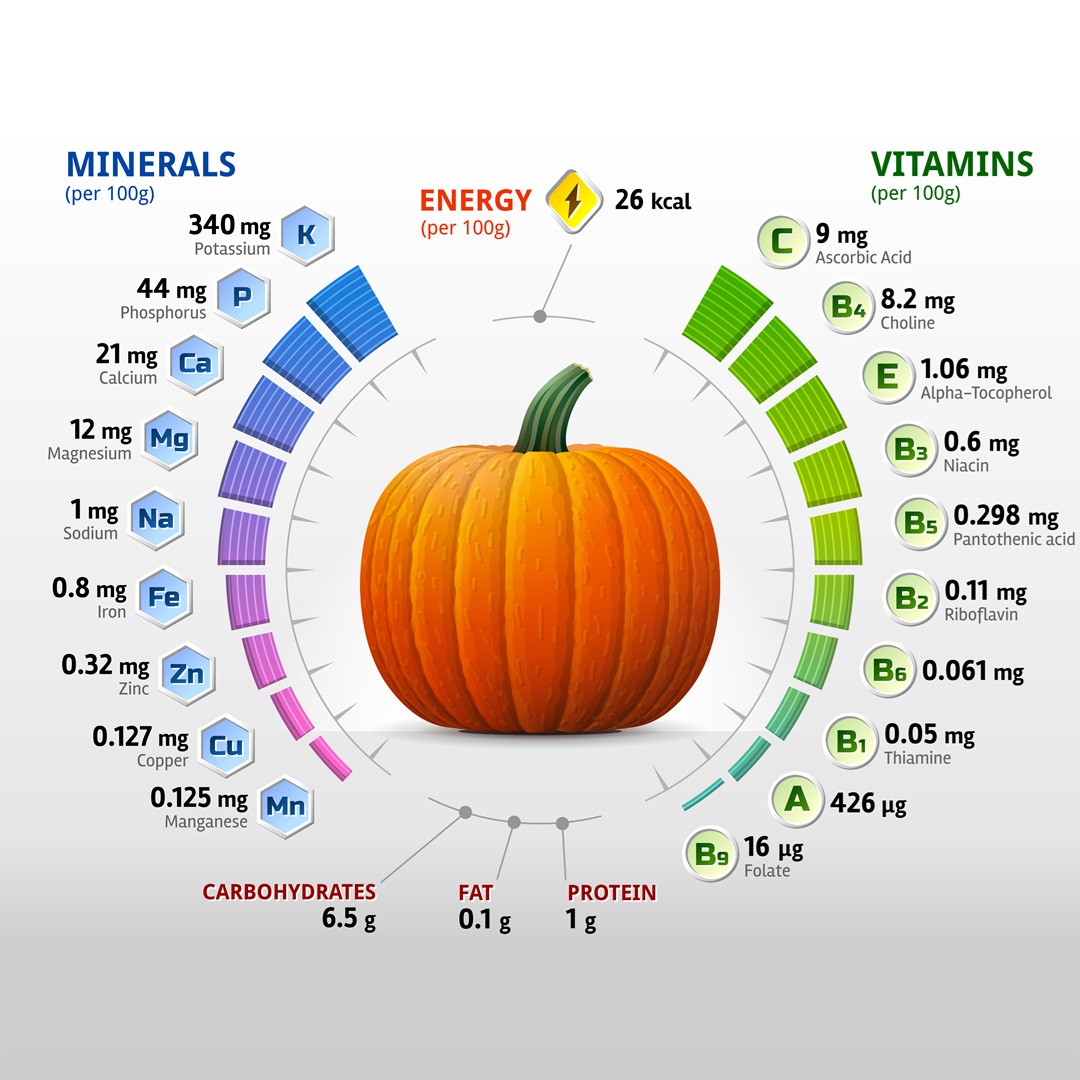by Stephen Luther, M.D.
Share

After the recent Thanksgiving celebrations, many of us undoubtedly have leftover pumpkin pie in our refrigerators. Or perhaps you passed on the pie but made pumpkin soup instead, as there is no shortage of pumpkin-based dishes that we relish during the festive season. But did you know that besides being a delectable treat, pumpkin has some incredible health benefits, too?
Yes, it’s true! Pumpkin is a nutrient-dense food that contains a variety of vitamins and minerals that can have a positive impact on our health. Let’s explore the excellent health benefits of pumpkin and why it should be a part of your regular diet.
Rich in Nutrients
Pumpkin is packed with essential nutrients such as fiber, potassium, magnesium, and vitamins A, C, and E. Not only that, but it is also low in calories and carbs, making it an ideal food for weight management. The vitamin A present in pumpkin can improve vision and protect against age-related eye diseases. Vitamin C boosts immunity and helps with collagen production, while vitamin E acts as an antioxidant and protects your body cells from damage.
Good for Heart Health
Pumpkin contains unique compounds such as beta-carotene, alpha-carotene, and potassium that can positively affect heart health. Beta-carotene and other carotenoids can help prevent heart disease by reducing oxidative stress and inflammation in the body. Potassium, on the other hand, can lower blood pressure and reduce the risk of stroke.
Boosts Immunity
Pumpkin also contains zinc, essential for immune function, and can help fight infections and diseases. It is also a good source of vitamin C, which stimulates the production of white blood cells and antibodies that fight off infections and diseases. Additionally, the antioxidants in pumpkin can protect your body against oxidative stress and other forms of damage caused by free radicals.
Regulates Blood Sugar
Another benefit of pumpkin is that it can help regulate blood sugar levels, thanks to its low glycemic index. The fiber and potassium present in pumpkin can help slow down the absorption of sugar in the blood, preventing blood sugar spikes and crashes. This makes pumpkins ideal for people with diabetes or those at risk of developing it.
Improves Digestion
Pumpkin is also rich in fiber, essential for good digestive health. The fiber in pumpkin can help regulate bowel movements, prevent constipation, and promote good gut bacteria. Additionally, the water content in pumpkin can keep you hydrated and aid digestion.
Pumpkin is more than just a traditional Thanksgiving treat – it’s a health powerhouse! From improving heart health and immunity to regulating blood sugar and digestion, pumpkin has many benefits that make it a valuable addition to any diet. So, go ahead and indulge in some pumpkin-based recipes guilt-free – including one of our favorites, “Roasted Pumpkin Quinoa Salad,” for which we’ve provided the recipe below.
Roasted Pumpkin Quinoa Salad
Ingredients
- 1 small pumpkin, peeled and cubed
- 1 cup quinoa
- 2 cups vegetable broth
- 1 red bell pepper, diced
- 1/2 red onion, thinly sliced
- 1/2 cup dried cranberries
- 1/4 cup pumpkin seeds
- 1/4 cup fresh parsley, chopped
- Juice of 1 lemon
- 2 tablespoons extra virgin olive oil
- Salt and pepper to taste
Instructions
- Preheat your oven to 400°F.
- Place the cubed pumpkin on a baking sheet lined with parchment paper. Drizzle with olive oil and season with salt and pepper. Roast in the oven for about 20-25 minutes or until the pumpkin is tender and slightly caramelized.
- In a medium saucepan, bring the vegetable broth to a boil. Add the quinoa, reduce the heat to low, cover, and simmer for 15-20 minutes or until the quinoa is cooked and the liquid is absorbed. Remove from heat and let it cool.
- In a large mixing bowl, combine the cooked quinoa, roasted pumpkin, diced red bell pepper, sliced red onion, dried cranberries, pumpkin seeds, and chopped parsley.
- In a small bowl, whisk together the lemon juice, olive oil, salt, and pepper. Pour the dressing over the salad ingredients and toss gently to combine.
- Taste and adjust the seasoning if needed.
- Serve the roasted pumpkin quinoa salad chilled or at room temperature.
This salad is delicious and provides a good balance of nutrients from the pumpkin, quinoa, and other vegetables. Enjoy this healthy and flavorful dish!





